
What are Rare diseases and genetic disorders ?

A relatively tiny percentage of the general population is afflicted with rare diseases and hereditary abnormalities.
Although the definition of rare diseases varies from country to country, generally speaking, a condition is considered rare if it affects less than 1 in 2,000 persons.
Changes (mutations) in genes or chromosomes, which can be inherited from one or both parents or might happen spontaneously, are the root cause of genetic illnesses. These illnesses can affect any area of the body, and depending on the illness, symptoms can be slight or severe.
Because rare genetic disorders are frequently poorly understood and may have few effective medicines available, they can be extremely difficult to detect and treat.
In recent years, efforts have been made to enhance diagnosis, treatment, and support for people and families affected by rare diseases and genetic abnormalities, as well as to increase public awareness of these ailments.
Cystic fibrosis, sickle cell anemia, Huntington's disease, and Duchenne muscular dystrophy are a few examples of rare hereditary diseases.
These diseases may necessitate specialized medical care, continuing therapy, and supportive services and can have a substantial influence on a person's health and quality of life.
Rare diseases can be brought on by environmental causes, infections, or other underlying medical disorders in addition to hereditary considerations.
Rare cancer subtypes, autoimmune diseases, and infectious diseases are a few examples of rare diseases that are not inherited.
Because rare diseases and genetic abnormalities are extremely uncommon, healthcare professionals who are not familiar with these problems may neglect or misdiagnose them. As a result, acquiring the proper diagnosis, treatment, and support that they require may present substantial obstacles for persons with rare diseases and genetic abnormalities.
Increased healthcare provider awareness and education, advocacy and support for people with rare diseases and their families, and continued research to better understand the causes, mechanisms, and therapies of these conditions are all actions taken to address these problems.
In addition to physical difficulties, people with rare diseases and genetic abnormalities may also have social and emotional difficulties, such as stigma, loneliness, and a lack of access to services and support.
Children and young people with uncommon diseases and genetic disorders may find it particularly difficult to locate friends who can relate to their circumstances.
For people and families impacted by rare diseases and genetic abnormalities, there are many support groups, advocacy organizations, and other resources available to meet these social and emotional requirements.
These groups can offer knowledge, emotional support, and chances to connect with people going through comparable circumstances.
More important to remember that although though rare diseases and genetic abnormalities can be difficult to treat and frequently necessitate specialized care, many people with these conditions lead full, happy lives.
Many persons with rare diseases and genetic abnormalities are now able to manage their symptoms, retain excellent health, and pursue their hobbies and ambitions because to advancements in medical research and treatment. Additionally, people who suffer from rare diseases and genetic abnormalities frequently find strength and fortitude in their experiences, and they may be able to meaningfully contribute to advocacy, research, and awareness efforts.
There are possibilities for people and families affected by rare diseases and genetic abnormalities to find support, community, and optimism, despite the fact that these ailments can pose major hurdles.
The improvement of diagnosis, treatment, and quality of life for those with will depend on ongoing research, education, and advocacy initiatives.
Those who suffer from hereditary and uncommon diseases.
The diagnosis and treatment options for people with rare diseases and genetic abnormalities are being improved because to developments in medical technology, such as genetic testing and precision medicine. Additionally, by offering financial and regulatory incentives for pharma companies, programs like the Orphan pharma Act in the United States and comparable laws in other nations are promoting the development of therapies for rare diseases.
A growing trend towards patient-centered care has emerged in recent years, emphasizing the significance of including patients and families in choices regarding their care and treatment. This method acknowledges that people with rare diseases and genetic disorders are the best experts on their own experiences and that it is crucial to have their opinions and input in order to provide them with the best care.
Even while genetic problems and uncommon diseases might be very difficult to treat, there is still cause for optimism.
In addition to raising awareness and creating a feeling of community among those affected, advancements in research, therapy, and support are helping to improve outcomes for people with these disorders.
Despite only affecting a small number of individuals, rare diseases and genetic disorders can significantly damage a person's health and quality of life.
These disorders can affect any region of the body and are brought on by hereditary or environmental factors.
Rare diseases and genetic abnormalities can be difficult to diagnose, and there are few therapeutic choices as well as social and emotional stigmatization for those who have them. However, improvements in outcomes for people with rare diseases and genetic abnormalities and the pursuit of patient-centered care and advocacy initiatives are giving these people hope for a better future.
People from diverse backgrounds and demographics are affected by rare diseases and genetic problems, which can also happen in any family.
In order to stimulate more research, treatment choices, and support services, it is crucial to expand awareness of these disorders.
Connecting with advocacy groups, support groups, and other resources can be helpful for people and families impacted by rare diseases and genetic disorders.
These groups can offer knowledge, emotional support, and chances to interact with people who share their experiences.
To remember that people with rare diseases and genetic abnormalities are, first and foremost, unique people with
special abilities, goals, and strengths. Although they may face difficulties as a result of their diseases, they are nonetheless capable of leading happy lives and making significant contributions to their communities.
We can ensure that people with rare diseases and genetic abnormalities may lead complete lives by collaborating to increase awareness, expand access to care, and offer support and resources.
Yes, and it's crucial to understand that a multidisciplinary approach is necessary to improve outcomes for those with rare diseases and genetic abnormalities.
This encompasses not only health care professionals but also scholars, decision-makers, patient advocates, and people who have these conditions as well as their families.
There is a need for more public education and awareness regarding rare diseases and genetic abnormalities in addition to research and treatment.
In addition to promoting greater awareness and support for those affected by these disorders, this can also assist lessen the stigma associated with them.
Overall, rare diseases and genetic disorders pose a complicated and multidimensional set of problems, but with continued research, advocacy, and support efforts, we may improve the situation for people who are afflicted with these afflictions.
We can improve diagnosis, treatment, and preventive choices by better understanding the underlying mechanisms and causes of uncommon diseases and genetic disorders through continuing study.
The goal of advocacy work is to improve access to care and support services by encouraging policy changes that will increase awareness and understanding of these disorders.
The information, resources, and emotional support people and families who are impacted by rare diseases and genetic disorders require to manage their ailments and enhance their quality of life can be obtained through support programs.
It's crucial to understand that people with rare diseases and genetic abnormalities are distinctive individuals with their own abilities, obstacles, and goals.
We can ensure that everyone has the chance to lead satisfying and meaningful lives, regardless of their medical condition, by cooperating to expand understanding, support, and resources.
Yes, that is a crucial point. It's crucial to treat people with rare diseases and genetic abnormalities with respect, empathy, and an emphasis on their unique needs and talents. By doing this, we can assist the development of a culture that supports everyone, regardless of their health.
Although they pose a considerable burden, rare diseases and genetic abnormalities also present opportunities for scientific research, advocacy work, and community development. We can continue to improve outcomes for people and families affected by these disorders by collaborating across disciplines and perspectives.
That is entirely accurate.
In order to further our knowledge and effectiveness in treating rare diseases and genetic disorders, collaboration and interdisciplinary effort are crucial. We may develop a more thorough understanding of the difficulties and opportunities given by these conditions by bringing together experts from several domains, such as medicine, genetics, psychology, sociology, and public health.
Interdisciplinary cooperation can support the creation of cutting-edge approaches to care, treatment, and diagnostics.
For those with rare diseases and genetic abnormalities, improvements in precision medicine, for instance, are enabling more personalised and focused approaches to treatment, which can enhance outcomes and quality of life.
Increased public, policymaker, and other stakeholder understanding of these situations can also be encouraged through interdisciplinary collaboration.
We can ensure that people with rare diseases and genetic disorders receive the care and support they need to live full and meaningful lives by banding together to raise awareness and lobby for more resources and support.
Indeed, it's crucial to take into account the ethical implications of researching and treating uncommon diseases and genetic abnormalities.
For instance, genetic testing and counseling can assist people and families in making knowledgeable choices about their present and future, but it's also crucial to make sure that these tests are carried out in a way that respects human autonomy, privacy, and confidentiality.
Additionally, it's important to strike a balance between the possible advantages of novel therapies and interventions and their potential drawbacks.
This necessitates carefully taking into account variables including safety, effectiveness, accessibility, and cost-efficiency.
It's crucial to make sure that everyone, regardless of financial class or geography, has access to the latest advancements in research and treatment for rare diseases and genetic abnormalities. This calls for a dedication to inclusion and equity in healthcare as well as actions to remove structural barriers to care and access.
In general, treating rare diseases and genetic abnormalities calls for a comprehensive and interdisciplinary strategy that considers not only the medical and scientific facets of these ailments but also its moral, societal, and financial ramifications. We can make progress toward bettering outcomes for persons and families affected by these disorders by cooperating to promote awareness, research, and support for them.
Yes, there is also the crucial matter of enabling people with rare diseases and genetic abnormalities to take an active role in their own care.
This entails include people in the planning and execution of research and treatment methods as well as giving them the knowledge, tools, and support they require to make knowledgeable decisions about their health.
Furthermore, it's critical to acknowledge that people with rare diseases and genetic abnormalities are frequently experts in their own conditions and can offer helpful perspectives to researchers and healthcare professionals. We can increase the efficacy and relevance of our research and treatment efforts by incorporating the lived experiences and views of patients and families into our understanding of these disorders.
The ability of people with rare diseases and genetic abnormalities to receive care and support must also be taken into consideration, which calls for tackling broader social and economic issues. This can involve problems such a lack of health insurance, difficulty getting around, and restricted access to supportive or specialist care.
We can ensure that all people with rare diseases and genetic disorders have access to the resources and support they need to live full and meaningful lives by working to overcome these systemic barriers to care.
A broad and interdisciplinary strategy that considers medical, ethical, social, economic, and cultural elements is necessary to address rare diseases and genetic disorders. Together, we can improve outcomes and quality of life for everyone by promoting research, increasing public awareness of these disorders, and providing assistance to those afflicted and their families.
It's crucial to keep in mind that everyone should have access to high-quality assistance and care, and that by working together, we can make this a reality for people with rare diseases and genetic abnormalities.


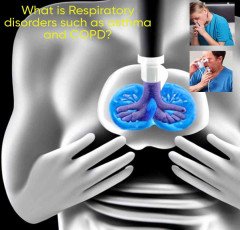

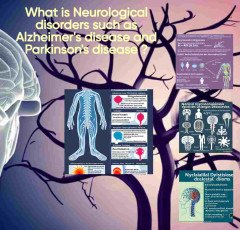
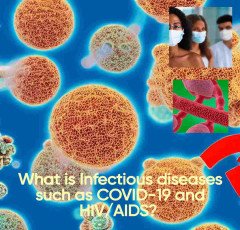
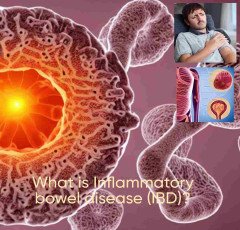
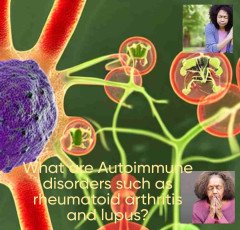






 NordPass
NordPass  Unlimited access to classes on illustration, photography, design, film, music
Unlimited access to classes on illustration, photography, design, film, music  ASUS Laptop
ASUS Laptop  SOFAS
SOFAS  1150+Trendy kids coloring pages Bundle
1150+Trendy kids coloring pages Bundle  Only For The United States
Only For The United States  SEO Checklist
SEO Checklist  Graphics & Design
Graphics & Design  Hot Bags For Pain Relief
Hot Bags For Pain Relief  BEST SELLER TOP10
BEST SELLER TOP10  Favorite Company (Cuelinks)
Favorite Company (Cuelinks)  Hello Theme
Hello Theme  RPM 3.0
RPM 3.0  Unreal Engine 5 For Beginners Learn The Basics Of Virtual Production
Unreal Engine 5 For Beginners Learn The Basics Of Virtual Production  Best Home Appliances
Best Home Appliances  ELECTRONIC ACCESSORIES
ELECTRONIC ACCESSORIES  Amazon Best Selling Products
Amazon Best Selling Products  TitTok Revolution
TitTok Revolution  Best Sellers On Amazon
Best Sellers On Amazon  Online Marketing
Online Marketing  NordLocker
NordLocker  One World Collection
One World Collection  Best Selling Books
Best Selling Books  Men Clothing
Men Clothing  The Click Engine
The Click Engine  Best Robotic Vacuum Cleaners
Best Robotic Vacuum Cleaners  Sennheiser
Sennheiser  Artificial Intelligence
Artificial Intelligence  Smart Doorbell
Smart Doorbell  The Secret Email System
The Secret Email System  All Wireless Products
All Wireless Products  Creative Brief For Video Shoot
Creative Brief For Video Shoot  Online Technology Classes
Online Technology Classes  Top Rated From Amazon
Top Rated From Amazon  Acer Laptop
Acer Laptop  NordVPN
NordVPN  ASPINAL LONDON
ASPINAL LONDON  Women Fashion
Women Fashion 
















